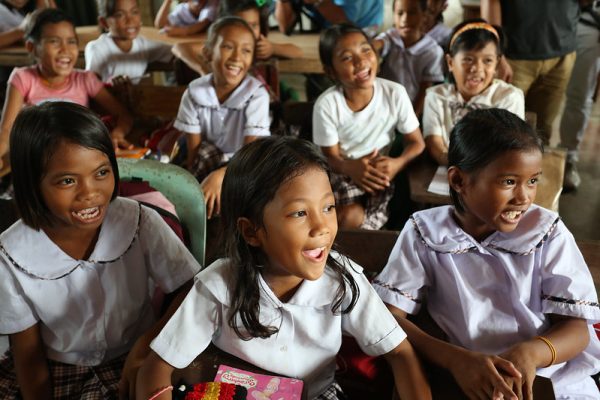
Schools in the Philippines have remained closed since March 2020 due to President Rodrigo Duterte’s insistence that sending students back to campuses is a risk he cannot take during the pandemic.
Duterte first rejected the proposal of the Department of Education (Deped) to reopen schools in December 2020 by citing the surge of COVID-19 cases linked to the Alpha variant. At that time, malls and cockfighting arenas had already been allowed to resume operations.
Duterte’s second rejection of the Deped proposal came in February of this year, when he asserted that the country should first vaccinate teachers and students in order to protect public health.
The third rejection was in June when he ordered Deped to drop the proposed face-to-face classes because of the threat posed by the more contagious Delta variant.
Because of this directive, Deped made preparations for the new school year without considering the possibility of a gradual reopening of schools.
More than 25 million elementary and high school students will start their classes this week even if schools are still closed. A handful of colleges were allowed to pilot face-to-face classes but the rest of the country’s learning institutions continue to rely on mobile and internet-based education.
In August, the Philippines was one of five countries in the world that had yet to reopen schools during the pandemic. Even the Taliban regime in Afghanistan has allowed universities to resume indoor classes.
Educators are aware of the detrimental impact of a prolonged closure of schools, which is why Deped had previously pushed for the soft reopening of around 1,900 schools in low-risk areas. Deped brought down the number to less than 200 because of the Delta variant but the proposal was still denied by Duterte.
“I think I am not inclined to agree with you. I’m sorry, I cannot gamble on the health of the children,” Duterte told Education Secretary Leonor Briones during a televised public briefing in June.
Briones’ quick reply acknowledged the “wisdom” of the president’s decision. “We are withdrawing our request in the light of your decision and we fully accept your decision, which is a very well-informed decision,” she said.
“We kept on bringing it down and now, even a hundred but listening to the briefing and listening to your decision, we don’t have any reservations because we all know the effects,” she added in reference to Deped’s plan to resume face-to-face classes.
This exchange reflects the kind of interactions that have taken place between Duterte and his subordinates in the pandemic response task force, most of whom are retired generals. Notice how Briones never bothered to strongly argue her case even if there are more than enough studies she can cite to convince Duterte that it is feasible to safely reopen schools while battling the pandemic.
Since last year, several officials who disagreed with the president’s viewpoints and government policies in handling the pandemic have resigned their posts. Duterte’s authoritarian style of governance could have discouraged other education experts from coming forward and challenging his decision. Duterte’s notorious intolerance of contrary views could have silenced bureaucrats and prevented academics like Briones from presenting evidence about the disastrous consequences of prolonging the closure of schools.
This is not the only time that the Philippines has adopted pandemic measures based on what Duterte thought was good for the people. His order requiring the use of face shields as an additional protective measure against COVID-19 was seconded by medical experts of the government’s task force. This policy is still being enforced up to this day even if it has already been revealed to have little scientific basis aside from worsening the country’s plastic pollution problem.
Duterte may have good intentions in preventing schools from reopening but this decision has long-term negative repercussions for the economy and the country’s human capital. It has triggered an education crisis and reinforced social inequality that could take years to resolve.
A local survey showed that only 46 percent of parents or guardians with kids in basic education said their children are learning under the blended teaching program of Deped. UNICEF Philippines Representative Oyunsaikhan Dendevnorov has warned about the impact of school closures on children.
“The associated consequences of school closures – learning loss, mental distress, missed vaccinations, and heightened risk of drop out, child labour, and child marriage – will be felt by many children, especially the youngest learners in critical development stages,” she said.
The experience of other countries has demonstrated that schools can operate without spreading COVID-19 infections, students can safely go back to campuses by practicing health protocols, and communities can run under a “new normal” even if restrictions are eased in school clusters. But Duterte is firm in his belief that allowing schools to operate would be damaging to the country.
The pandemic may have forced the abrupt closure of schools in 2020 but it is Duterte’s fault that schools are still closed in the Philippines today. Duterte is not the only leader in the world accused of being incompetent in dealing with the pandemic but he is one of the few who has failed to understand why it is urgent for schools to reopen.

0 Comments